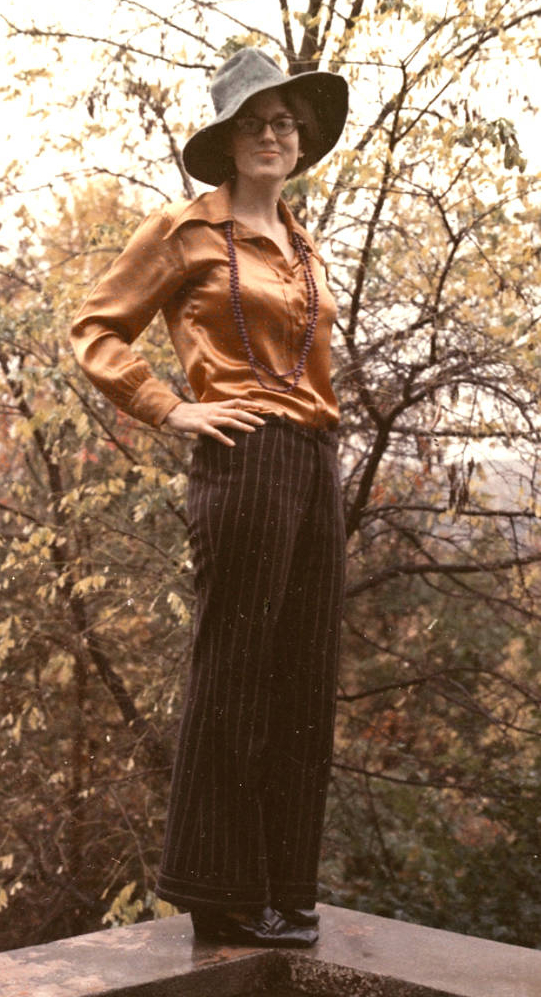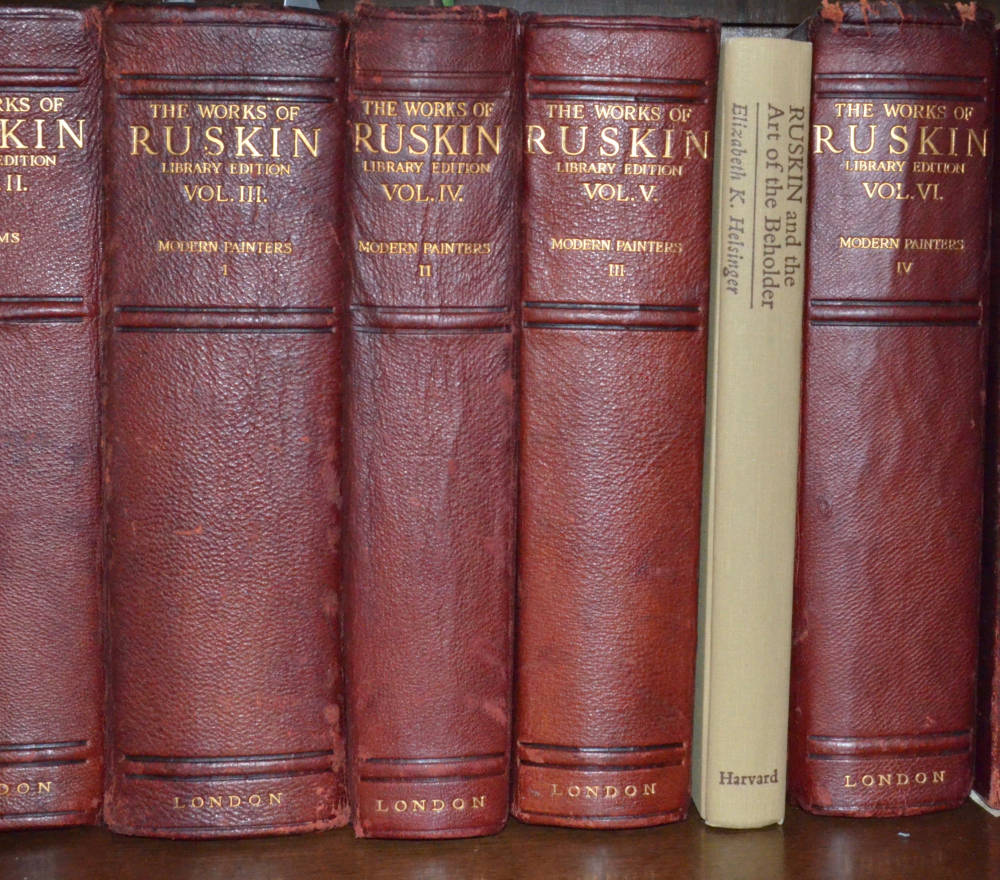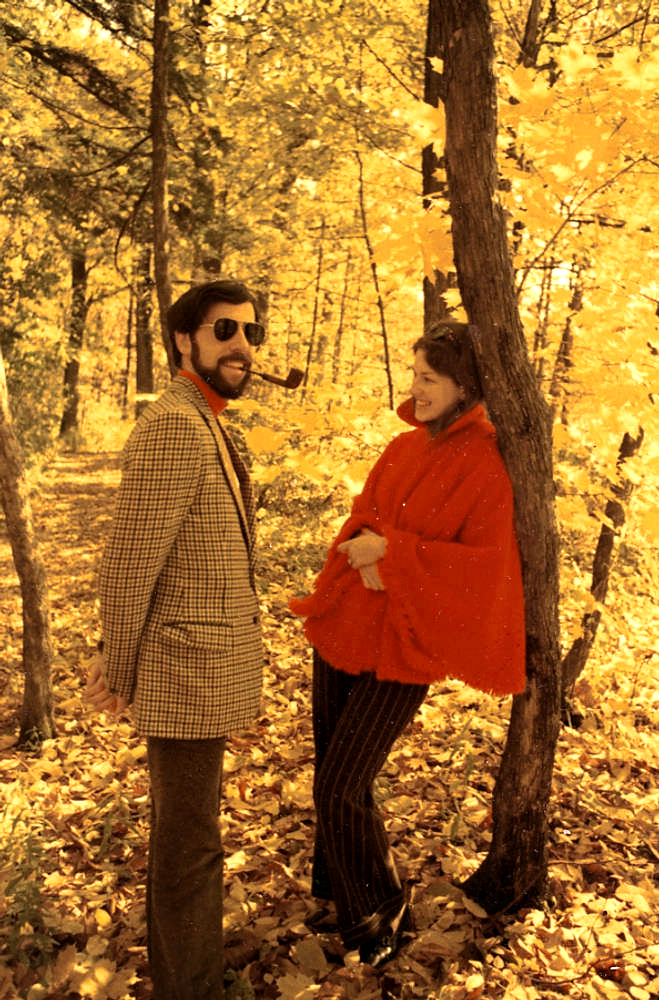I came to Ruskin through his prose: the amazing writing in the chapters on Mountain Gloom and Mountain Glory. In 1964 (when the social message of those passages was beginning to resonate again) I was a junior at Radcliffe (Harvard) majoring in history and literature. My tutor assigned an essay on Ruskin, then unknown to me (as a Coleridge scholar, that tutor was perhaps anticipating Patricia Ball's 1971 study of the Science of Aspects: The Changing Role of Fact in the Work of Coleridge, Ruskin, and Hopkins, a linking that would continue to be important to me in my later work). At any rate, I was hooked, though writing a dissertation on Ruskin's ways of seeing would come much later.



Two photographs from the Helsinger’s summer in Ithaca, New York. and that leatherbound copy of the Library Edition flanking Ruskin and the Art of the Beholder. [Click on images to enlarge them.]
The dissertation project owed much to the example of my advisor, John D. Rosenberg (whose high standards for prose also kept my own ever-branching sentences in line). But a serendipitous invitation from George Landow to house-sit one summer in leafy Ithaca, NY allowed me to spend a month reading through George's leatherbound copy of Cook and Wedderburn (with his annotations in beautiful black-ink calligraphy) in the most idyllic of settings. Though I struggled to make Ruskin just one part of a larger project on symbolism (with a lot of poetry and a large component of French theory and practice), he managed to consume the dissertation. It was only after the experience of teaching literature and landscape together, to art historians as well as English scholars at Chicago in the early 1970s, that I was able to set aside an ungainly dissertation and begin again. The resulting book, Ruskin and the Art of the Beholder (complete text), owed its title to another fortuitous encounter – with Helen Vendler, who reminded me of the lines from Hopkins that provided the title, and incidentally sent me back to Hopkins and to poetry for my next book – a book still Ruskinian in spirit despite my best intentions to keep him out of my writing. Once immersed in Ruskin, one never wholly leaves him behind.
Last modified 3 May 2019